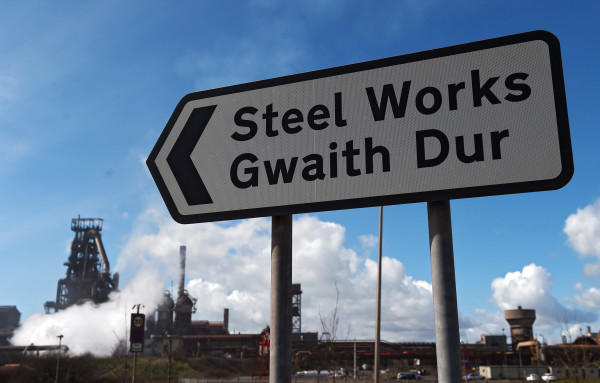

A former steelworker has complained to the Financial Ombudsman Services (FOS), after he faced delays receiving his transfer value from the British Steel Pension Scheme (BSPS), which, he said, had prevented his transfer out.
David Smith, a former worker at Tata Steel, requested his cash equivalent transfer value (CETV) from the scheme trustees on 18 October 2017, when he faced a three-month delay in receiving the value.
This had led to him missing the deadline for making a transfer request and also meant he was losing out on transfer value, he said.
Mr Smith had made the request a few weeks after it was announced that steelworkers would have to choose between transferring to a new pension fund, or to remain in the old plan, which would later go to the pensions lifeboat fund.
Steelworkers were given the option as a result of a restructuring deal reached with their employer.
The BSPS had been officially separated from Tata Steel in the previous month, after The Pensions Regulator gave its initial consent to the restructuring of the defined benefit (DB) scheme in August, ending a long-running dispute between pension holders and the business.
According to documents seen by FTAdviser, despite making a request in October, Mr Smith only received his CETV on 25 January 2018 – three weeks before the cut-off point before which he would have had to submit a pension transfer request.
Mr Smith said he had tried to arrange a meeting with the financial adviser provided by his employer but was only able to see him on 21 February, due to work load and holidays.
He said: "It was explained to me at this meeting that there wasn't enough time to transfer out. No one up until this point had said that there was a time limit on this."
What's more, when he requested a new transfer value from the new scheme, the British Steel Pension Scheme II, he received a quote which was 22.7 per cent lower than his initial one.
FTAdviser has seen transfer values obtained by other steelworkers, which were all between 20 and 30 per cent lower than the CETVs from the old scheme.
According to Eugen Neagu, head of financial planning at Montfort – who created a guide for British Steel pension transfers last year – the difference in transfer values between the new and old schemes was a result of the "change in benefits in the new scheme".
BSPS II does not provide increases to benefits accrued before 1997, which happened in the previous plan, and it uses the consumer price index (CPI) for indexation, instead of the retail price index (RPI), which was used by the old scheme.
But Mr Neagu said financial advisers should have been able to turn around a suitability report quickly, even if the trustees were late in sending the transfer value.
He said: "Good financial advisers should have been ready to receive a late transfer value and prepare the suitability report in advance.
"We had cases where we received a CETV and gave the report to the client a week after."
Mr Smith brought his complaint about the BSPS trustees to the Fos because he was unable to transfer out on the original CETV.
The trustees declined to comment. The case is currently being analysed by the Fos.
maria.espadinha@ft.com



